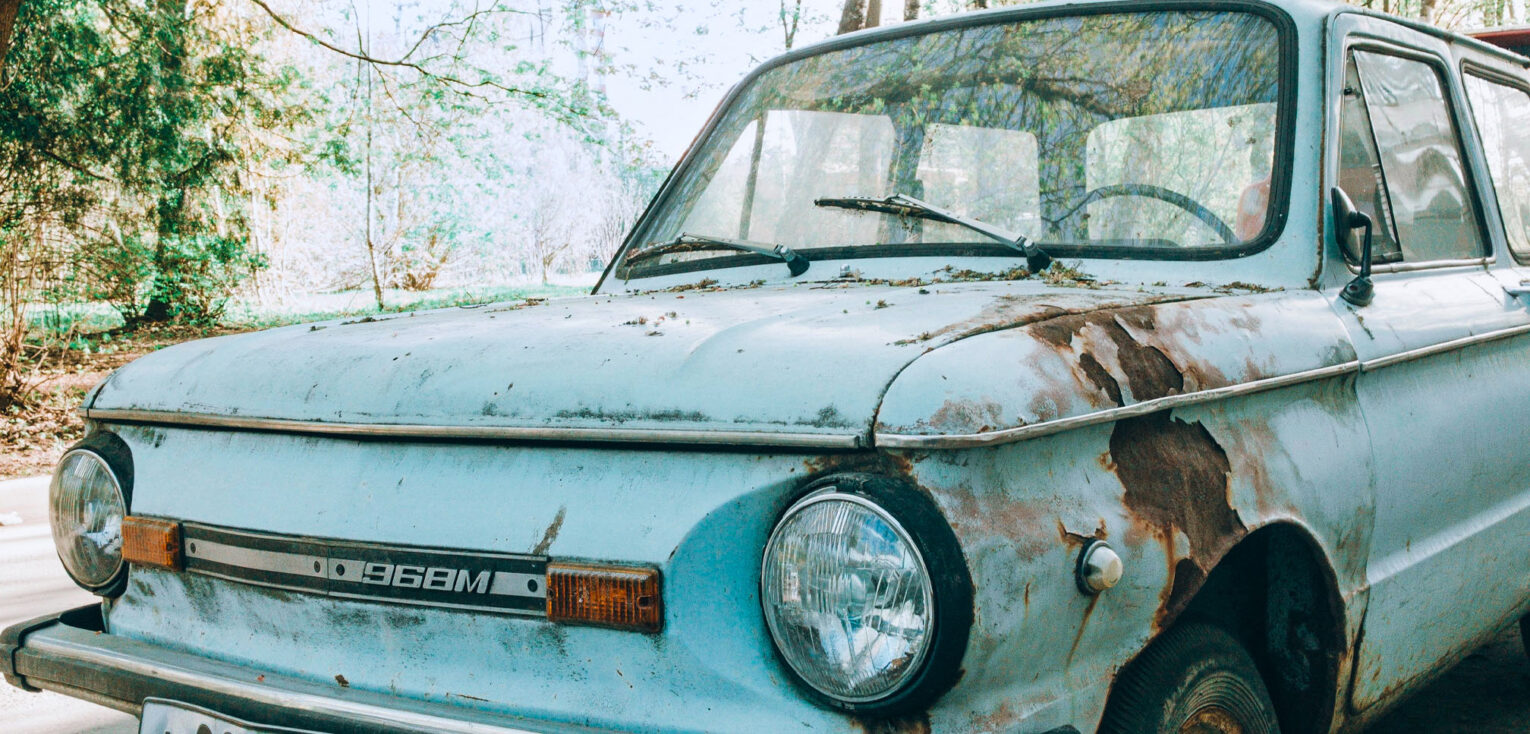Unlike squeaky brakes, a check engine light, or a rumbling engine, rust can creep up on you and cause costly damage to your vehicle before you notice it’s there. Rust is, however, preventable. Below are 9 tips on how to prevent rust, along with a brief explanation of why you should prevent it.
Rust Damage
There are several ways that rust can damage your vehicle. There’s damage that you can plainly see, like a ruined paint job, bubbles or cracks in your car’s body, and even holes (in extreme cases). There’s also structural damage, like a weakened body or undercarriage, or a damaged engine bay. If left untreated, rust can cause performance issues, it can lower your vehicle’s resale value, and it can make your vehicle unsafe to drive.
Tips for Preventing Rust
Tip #1: Wash your vehicle regularly.
One of the easiest ways to prevent rusting is to wash your car on a regular basis. This is especially important in the wintertime. Pennsylvania winters are unpredictable and it’s fairly common for roads to be salted in case of snow. Whenever you drive over road salt, you’re exposing your car to chemicals that can leave it vulnerable to moisture and rust. By washing your car regularly, you can remove harmful chemicals and debris and stop rust in its tracks.
Tip #2: Wax or polish your vehicle after washing.
Wax isn’t just a way to make your vehicle look shiny and new. It’s also a great way to protect your vehicle against water and reduce the risk of rust. Wax creates a protective barrier between your car’s body and all of the water you encounter from rain, snow, sleet, or humidity. Only apply wax after cleaning and drying your car. For the best results, you should wax your vehicle at least two times a year, or every 3-4 months depending on driving conditions.
Tip #3: Fix dents or scratches as soon as possible.
Unfortunately, dents, dings, and scratches happen. You can’t always prevent them, but you can protect your vehicle from rust by repairing them. Dents and scratches can leave your car’s metal body exposed to the elements. By taking the time to ensure dents and scratches are buffed out and re-sealed with fresh paint, you can keep the metal underneath safe from moisture or other harmful substances that can lead to rusting.
Tip #4: Clean and coat the undercarriage of your vehicle.
While it may seem like the body of your car faces the biggest threat as far as rust is concerned, that’s actually not true. Your undercarriage is far more vulnerable to rust. From road salt to acid rain to dangerous debris, your vehicle’s undercarriage encounters all sorts of things on the road. Be sure to regularly clean the undercarriage of your car (especially in the winter) by taking it to a car wash with undercarriage services or by pressure washing it.
Once your undercarriage is cleaned, you can coat it with a rust-inhibiting spray. Restored Auto LLC offers Fluid Film Frame Spray to protect against road salt, pesticides, fertilizers, and other debris that can cause rusting. Call us today to schedule an appointment!
Tip #5: Clean inside of your vehicle.
Moisture on your seats or carpet can lead to rusting if it isn’t dried properly. Whenever the inside of your car gets wet (from rain, snow, or even just a leaky air conditioner), you should make sure everything is dried out quickly and completely. You can also purchase rubber floor mats to help protect your car’s floors.
Tip #6: Clear your seals and drains.
Vehicles are designed to keep water out and many come with drain holes in the doors and around sunroofs. Your doors and trunk also come with seals. These things can all become clogged by leaves and other debris over time. By keeping your seals and drains clear, water and other moisture can drain off of your car properly. This will help to keep your vehicle dry and prevent rust from forming around drain holes or seals.
Tip #7: Check for rust during regular maintenance.
As you perform regular vehicle maintenance, like oil changes, brake checks, and tire rotations, check for signs of rust. If you notice any leaks or new scratches or dents, make sure to repair them to prevent rust from forming. If you see bubbles in the paint, this may be a sign that rust has started to form. Don’t panic—you can still prevent it from spreading any further. Spotting problem areas early gives you time to address it before it becomes an expensive repair.
Tip #8: Address any rusty spots when you find them.
If you find spots on your car where rust has started to form, address those spots immediately. This may mean buffing out the rust with a heavy grade of sandpaper or wire brush, or it may mean replacing rusted parts or panels with new parts or panels. You may also be able to utilize a rust converter to stabilize any rusty areas and prevent the rust from continuing to spread.
Tip #9: Keep your vehicle covered.
Our final tip for preventing rust is to keep your car covered. Keeping your vehicle out of the elements as much as possible will help to preserve the paint’s life, protect the undercarriage, and prevent wear and tear caused by weather. Parking in a garage is probably your best bet for avoiding rust, but that’s not always an option. You can also utilize alternative shelters, like car ports or car tents, or you can get a car cover. If you choose to use a car cover, make sure you get the right size. Car covers that are too big or too small can lead to other issues.
Call Restored Auto LLC for help.
At Restored Auto LLC, we offer rust-inhibiting frame spray. We can also help you keep up with routine maintenance and inspect your car for weak spots so you can prevent rust before it’s too late. Give us a call today to schedule an appointment.

